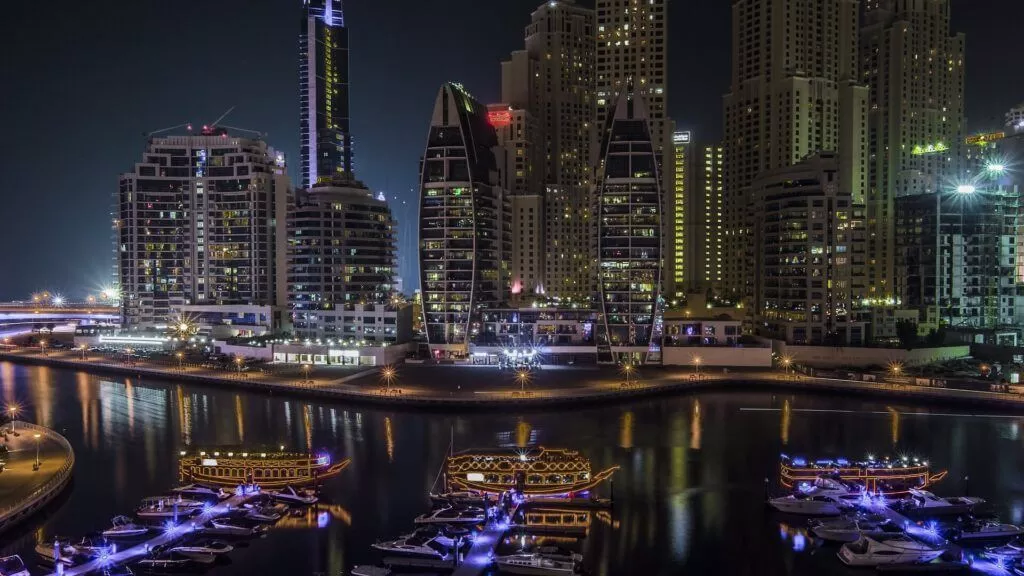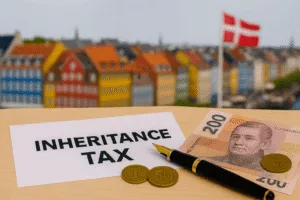UAE Business Ventures in Israel
Our firm played an integral role in crafting a comprehensive business guide, jointly published in 2021 by prominent Israeli and Emirati enterprises, and backed by the Ministry of Foreign Affairs, the Export Institute, the Manufacturers Association, and various Emirati corporate entities. Within this guide, our firm meticulously examined the array of tax incentives available in Israel, as stipulated by the Encouragement of Capital Investments Law.
To access the guide, click here.
Free Trade Zone
Free Trade Zones (FTZs) represent designated areas within a country where businesses benefit from relaxed customs regulations, enticing tax incentives, and more accommodating operating conditions. These zones are strategically conceived to bolster economic advancement, allure foreign investment, and streamline global trade by offering distinct advantages and efficient regulatory frameworks.
The United Arab Emirates boasts an array of free trade zones spread across its territory. In these enclaves, establishing businesses is notably streamlined. Moreover, companies subject to taxation can enjoy corporate tax exemptions (with the possibility of extensions). With over 40 diverse FTZs, the UAE provides a plethora of options, each with its own set of regulations. Navigating the choice of whether to establish a company in a specific region entails complexity, and the cost disparities are indeed substantial.
Taxation Across the Seven Emirates
Tax in Abu Dhabi
Serving as the capital of the UAE, Abu Dhabi also holds the distinction of hosting the Emir, who serves as both the ruler of Abu Dhabi and the President of the UAE. Abu Dhabi holds the distinction of being the largest emirate, encompassing 84% of the Union’s territory. Dominating the energy sector, Abu Dhabi has diversified its economy in recent years, with tourism playing a pivotal role in its growth. While subject to the standard UAE taxation system, Abu Dhabi bears the highest tax burden due to its significant oil production.
Tax in Dubai
Dubai, the second-largest emirate in the United Arab Emirates, stands as a vanguard in trade and finance, often referred to as the “jewel in the crown.” The emirate’s expansive territory is home to numerous free trade zones, and in recent times, it has established itself as a prominent hub for high-tech enterprises.
Despite its abundant oil resources, Dubai’s strategic development has diversified its economic pillars, shifting away from oil dependency.
Dubai’s taxation framework adheres to the broader UAE tax system, resulting in the absence of federal taxes within the emirate. Notably, individuals are exempt from income tax, with income only subject to taxation if it’s generated and earned within Dubai’s borders.
The real estate market in Dubai has witnessed substantial growth over recent years, with a staggering increase of over 40% in the emirate’s population within the last five years. This influx has played a role in driving up real estate prices.
While Dubai boasts the highest real estate tax among the Emirates, it remains markedly lower than global standards. The singular tax associated with Dubai real estate is a “transfer tax,” set at 4%, which is legally apportioned between property buyers and sellers.
For the latest insights into Dubai’s real estate transactions, property prices, and opportunities in this sector, individuals can refer to the website of Adv. Ohad Shpak. A distinguished expert in international real estate transactions and a graduate of the Ministry of Foreign Affairs, Adv. Ohad Shpak is dedicated to aiding many Israelis in their pursuit of real estate acquisitions overseas.
Sharjah
Ranked as the third-largest emirate, Sharjah claims the title of the cultural capital of the Union. Boasting two free trade zones, it champions innovation and entrepreneurship, nurturing a thriving ecosystem of 45,000 small and medium-sized businesses.
Ajman
The smallest emirate, Ajman occupies just 0.3% of the Union’s territory. It’s closely connected by roads to its neighbors Dubai and Ras Al Khaimah.
Umm Al Quwain
Umm Al Quwain, the second smallest and least populated emirate, thrives in the fishing industry with exports to Europe and the Middle East. Housing a significant port and free trade zone, it contributes to the emirate’s economy.
Ras al Khaimah
Positioned as the fourth-largest emirate, Ras Al Khaimah boasts a bustling port and is renowned for its pearl resources. It dominates concrete production within the Union and hosts prominent pharmaceutical manufacturers. Multiple free trade zones characterize this emirate.
Fujairah
The only emirate situated exclusively on the Union’s eastern coast, Fujairah relies on agriculture and fishing. With access to the Indian Ocean and numerous trade routes, it houses a versatile port and international shipping companies. Fujairah’s trade zone around the port stimulates foreign investment in banking and trade.
Company formation in the UAE
There are 3 types of companies in the UAE:
- Offshore
- Free Zone
- LLC company – Mainland
Offshore companies
The concept of offshore companies pertains to entities incorporated beyond the regulatory purview of their intended operational country’s tax authority. To establish an offshore company in the UAE, a pivotal step involves registration through an Emirati registered agent, a process renowned for its speed and cost-effectiveness (typically completed within 3 business days).
This method of registration is particularly advantageous for holding companies and international enterprises seeking to operate within the UAE’s boundaries while harnessing the myriad tax incentives available.
Benefits:
- Allows non-EU individuals or entities to hold complete ownership (100%) of the company.
- Facilitates access to the full spectrum of tax advantages within the UAE.
- Offers a streamlined and budget-friendly registration procedure, complemented by modest ongoing operational and renewal expenses.
- Enables the establishment and maintenance of a corporate bank account within the Emirates.
- Authorizes the holding and management of business real estate within specific zones and within defined parameters.
- Ensures confidentiality and the safeguarding of sensitive information.
Considerations:
- Bars engagement in business activities within the EU or with EU residents.
- Precludes eligibility for obtaining a visa.
- Imposes restrictions on involvement in sectors such as insurance, aviation, or banking (though maintaining an Emirati account is permissible).
Our firm boasts valuable connections with UAE-based accounting firms endowed with registered agent status. Leveraging these connections, we facilitate the seamless registration of foreign companies in an efficient and straightforward manner. For more information, feel free to, contact us.
Free Zone companies
With a wealth of over 70 free trade zones, the UAE extends a multitude of avenues for foreign companies to thrive. Each free trade zone presents a unique array of specialized business activities, finely tuned to cater to diverse enterprise needs. Varied definitions, operational costs, maintenance expenditures, and advantages characterize each trade zone, contingent on their geographical location and trade prospects. Among the distinguished and sizable trade zones, notable mentions include DMCC, JAFZA, DSO, Ajman, SHAMS, UAQ, and RAKEZ.
Company solutions to clients situated within the UAE and who exhibit an interest in obtaining a residence permit (visa) along with a trading license within the country. This approach naturally aligns with the pursuit of harnessing a diverse array of tax benefits available in the UAE.
As previously mentioned, the European Union boasts a multitude of free trade zones. As an integral part of our services, we actively guide our clients in pinpointing the ideal sphere of activity that seamlessly aligns with their individual business requirements.
Mainland Companies
Mainland companies encompass enterprises registered within the UAE, enabling operations across all Emirates and extending beyond the boundaries of free zones. Typically, to achieve mainland status, a significant portion of the company’s ownership must be held by an Emirati resident. Notably, specific professional and service sectors are accorded the privilege of 100% foreign ownership.
Benefits:
- Comprehensive exemption from personal income tax, corporate tax, and VAT.
- Access to a diverse portfolio of licenses spanning advertising, retail, professional services, and industrial pursuits.
- Swift company incorporation, often achieved within 1-2 weeks.
- The capacity to engage in unrestricted global and UAE-wide business activities, differentiating from free zone companies.
- Facilitated acquisition/rental of commercial real estate, storage facilities, and land across all Union areas.
- Elimination of mandatory share capital requirements.
Cons:
Necessity for a physical official office in the UAE, precluding registration of virtual offices like flexi-desks or flexi-offices.



